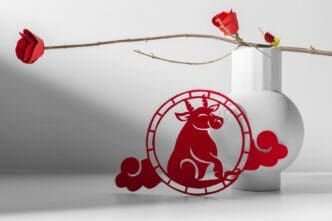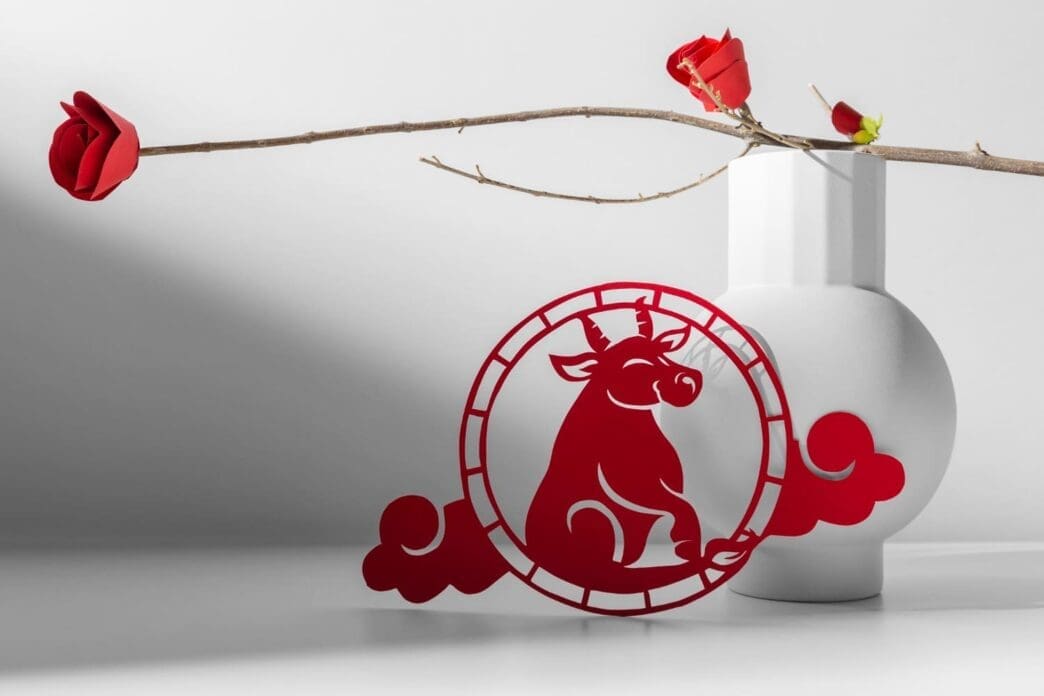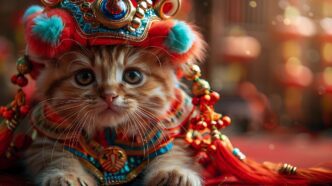Are you curious about what the stars have in store for you? The Chinese Zodiac, a system over 2,000 years old, might have the answers you seek. It’s not just a horoscope; it’s a guide to your personality and destiny, based on the year you were born.
This fascinating cycle consists of 12 animals, each linked to a lunar year. These animals—Rat, Ox, Tiger, Rabbit, Dragon, Snake, Horse, Goat, Monkey, Rooster, Dog, and Pig—offer insights into your character, relationships, and even career choices. Let’s dive into the world of the Chinese Zodiac and discover how these animals can unlock secrets about ourselves.
Unveiling the Animals of the Chinese Zodiac
The Chinese Zodiac, or shengxiao, is an ancient astrological system based on a twelve-year cycle, each year marked by an animal. Starting with the Rat and ending with the Pig, this cycle shapes the personality traits and destinies of individuals. The Rat, clever and quick-witted, is known for its resourcefulness.
The Ox, reliable and strong, follows the Rat. It’s said those born in the year of the Ox are calm and methodical. The Tiger, resembling bravery, is unpredictable yet competitive. Next is the Rabbit, gentle and quiet, followed by the mysterious Dragon, a symbol of intelligence and enthusiasm. The Snake is wise and graceful, often seen as intuitive.
Each animal has its unique set of characteristics, influencing not only individual life paths but also how people interact in society. For example, the energetic Horse and the creative Goat have distinct traits that reflect in their behavior and decisions. Understanding your zodiac animal can provide valuable insights into your personality and relationships.
The Tale Behind the Zodiac
The origin of the Chinese Zodiac stems from an intriguing legend involving the Jade Emperor, a supreme deity. He orchestrated a race inviting all animals, but only twelve answered. These became the zodiac animals.
The Rat, clever and strategic, won the race by hitching a ride on the Ox. The diligent Ox followed, and the Tiger, sturdy and strong, came next. The Rabbit, nimble on its feet, claimed the fourth spot, while the selfless Dragon secured fifth by helping others along the way.
This race’s tale highlights traits each zodiac animal embodies. The Snake, cunning and subtle, took sixth, surprising the Horse into seventh place. Working together, the Goat, Monkey, and Rooster avoided obstacles to finish next, while the Dog’s playful nature kept it in eleventh. The Pig, relaxed and leisurely, finished last, capping the zodiac.
These stories are not just fables but are deeply woven into Chinese culture, influencing beliefs and practices to this day.
Identifying Your Zodiac Sign
To know your Chinese Zodiac sign, align your birth year with the designated animal in a twelve-year cycle. For instance, 1991 is the year of the Goat. This chart serves as a guide for those seeking to understand their zodiac’s meaning.
When considering the start of a zodiac year, you have two options: Chinese New Year or the Start of Spring. Most people use the Chinese New Year, typically in late January or early February, to determine their zodiac sign. This method is widely embraced by popular astrology.
Understanding your zodiac’s start date is crucial because it influences what sign you fall under if born in January or February. Such intricacies show the depth of the zodiac system and its cultural significance.
Luck and the Zodiac
In Chinese traditions, certain zodiac animals are viewed as luckier. The Dragon, Snake, Pig, Rat, and Tiger are often among the favored signs. For instance, the Dragon is so revered that birth rates often spike during Dragon years.
Conversely, the Goat is sometimes seen as less fortunate, encapsulated by the saying ’10 Goats, 9 incomplete.’ This belief indicates that Goats might encounter more challenges, yet it’s essential to remember that perceptions of luck are subjective.
Every sign has strengths and vulnerabilities. How individuals harness these traits, alongside societal interactions, deeply impacts their lives.
Cultural Influence of the Zodiac
The Chinese Zodiac’s role transcends mere personality assessments. It’s a pillar of culture, guiding major life decisions like marriage and business dealings. Each animal’s characteristics provide fortune-telling insights, predicting compatibility and destiny.
The zodiac also intertwines with the Five Elements, adding another layer to its depth. This system influences how people select auspicious dates and approach life’s opportunities.
Through the zodiac, values such as wisdom, courage, and loyalty are emphasized, reflecting essential aspects of Chinese philosophy and tradition.
This rich tapestry of beliefs continues to shape Chinese culture, showcasing the zodiac’s enduring importance.
Zodiac Across Asia
Beyond China, the Zodiac holds cultural sway in countries like South Korea, Japan, and Vietnam, each hosting its version. While similar, these zodiacs vary slightly in animal choice and cultural interpretation.
For example, Japan includes the Boar instead of the Pig, while Vietnam replaces the Rabbit with a Cat. Such variations illustrate the Zodiac’s adaptability and influence across regions.
Thailand’s zodiac introduces a unique creature, the Naga, reflecting its cultural myths. This exchange of symbols highlights a shared but diverse appreciation for zodiac-based astrology.
Myanmar’s eight-animal zodiac further exemplifies this diversity, emphasizing regional lore. These adaptations underscore the Zodiac’s flexibility and cultural resonance.
The zodiac’s spread across Asia demonstrates its universal appeal and integration into various belief systems, fostering a shared understanding among different cultures.
Deep-Rooted Traditions
The Chinese Zodiac’s influence runs deep, guiding not just personal choices but entire cultural practices. It’s more than a calendar; it’s a lens through which life’s complexities are viewed.
As generations pass, these traditions continue to thrive, illustrating the Zodiac’s lasting relevance and importance in modern times.
Whether during festive celebrations or in daily life, the Zodiac remains a cherished aspect of cultural identity.
Its stories and lessons offer guidance and reflection, reminding us of the interconnectedness of all things.
The Chinese Zodiac is an ancient guide, interweaving myth and reality. Each animal offers insights into who we are and where we’re going. Understanding these signs can enrich our lives and deepen connections, reminding us of our place in the universe.








